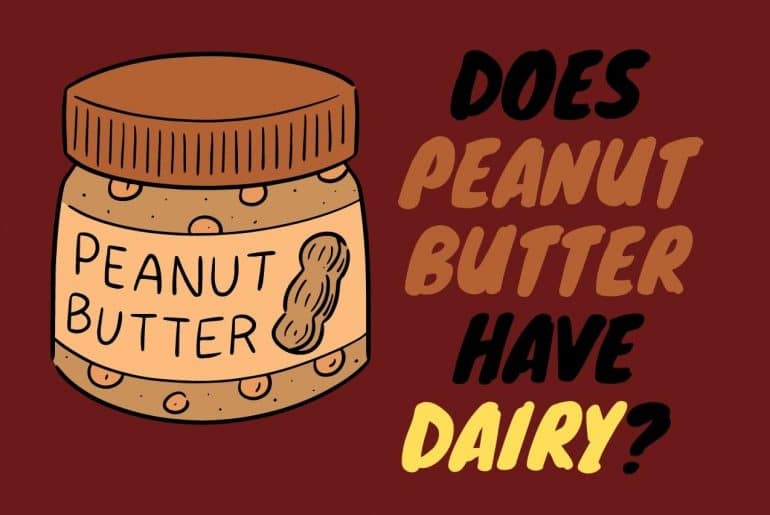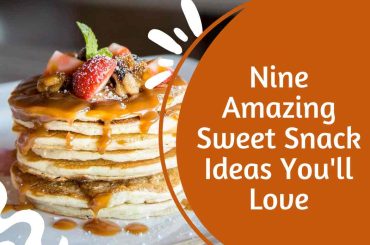Everyone’s cupboard eventually contains peanut butter, and users all develop an affection for it. But does peanut butter have dairy? And anyway, it includes the term “butter.” It’s also possible that not each peanut butter is created equal.
Introduction
There is an excellent reason why peanut butter is such a special meal. It’s a very adaptable component that may be converted into a savory and delectable marinade for noodles or veggies, as well as utilized in sweets, snack meals, quick and simple lunches, plus desserts.
Due to a few peculiarities, peanut butter may give the impression that it is dairy in nature. First of all, the peanut creamy name contains the term “butter.” Given that it’s made of milk and buttery, the yellow spreading that goes on bread is a dairy product.
Secondly, peanut butter spreads like regular butter and can lead you to believe that it includes milk or other dairy products to achieve this spreadability.
But does peanut butter have dairy? Discover whether peanut butter contains dairy, what ingredients it is comprised of, and whether any peanut butter is suitable for a diet pure of dairy.
What Is Peanut Butter?
Ground peanuts are used to create the spread known as peanut butter. The spreading can be utilized as a salad dressing either in savory recipes such as peanut sauce, as well as on hamburgers, crackers, bread, pastries, and other foods. Even though it’s not just available here, peanut butter uses a lot of this component.
Since it is rich, creamy, and crunchy, loaded with protein and lipids, and tastes so good, peanut butter is quite popular. The smooth smoothness of peanut butter gives it the label “butter,” despite the fact that it is not actually “butter” in the sense of a product derived from milk and cream. It resembles various nut kinds of butter in taste.
What Is Dairy?
All foods made with milk are collectively referred to as a dairy. According to technical definitions, this refers to food prepared from cows, goats, and sheep milk. Dairy includes all animal milk. But since drinking cow’s milk represents the most common dairy product in the United States that is the term we often refer to when we discuss dairy.
Does Peanut Butter Have Dairy?
Although peanut butter might include the word “butter” in its name, the dairy substance is not really present in it. Typically, pure peanuts were crushed to a spreadable consistency to create organic peanut butter. Peanuts, salts, oils, and occasionally other sugars are the main ingredients in peanut butter.
Some peanut butter producers, however, use other additives in addition to crushed peanuts. The majority of peanut butter is dairy-free. Some companies do, however, supplement their goods with milk or whey. Look at the label carefully if you’re seeking just dairy-free peanut butter.
Since peanuts are indeed a form of legume, they are free of dairy ingredients. Yet, some individuals with peanut allergies may also have a reaction to milk products. Therefore, it is always advisable to consult their doctor prior to eating anything that includes peanuts.
Although peanut butter is frequently a healthy option, certain varieties may include lactose, which can cause stomach problems. The response to such nut spreading may vary from moderate to severe, based on the level of sensitivity. Yet, using the proper items might help you avoid any pain caused by lactose.
Does Peanut Butter Include Any Dairy?
Due to the fact that the basic recipe called for roasted peanuts and salted, peanut butter would be, by nature, devoid of dairy. In order to create glue, peanuts are actually squeezed and combined so that they become salty.
The outcome is a highly watery paste that is not the best solid. It’s necessary to mix peanut butter sometimes since the fats would eventually separate from granules. Given that it doesn’t contain any additional thickeners or stabilizers, natural peanut spread, however, does not keep as long as ordinary peanut butter.
Peanuts don’t contain dairy
Despite the fact that they don’t include any dairy in any way, peanuts can nevertheless trigger allergies when eaten on their own. Despite several deceptive names for foods, dairy cannot be acquired by milking livestock. Due to the absence of additional milk or butter, products, including nut butter, are entirely vegan as well as dairy-free.
Examine the label at all times
In light of this, you should always verify the label.
Given its widespread consumption, peanut butter needs to appeal to a wide range of tastes. Some people use it to increase their calorie consumption, some to increase their intake of protein, while others enjoy the taste. Even though the standard version of peanut butter lacks dairy, you could still discover all kinds of different mixes in it.
Some kinds of peanut butter could include dairy in the shape of powder yogurt, milk, or whey extraction. Even though milk isn’t explicitly mentioned, it could still be present if milk chocolate is blended with peanut butter. Additionally, milk is a constant ingredient in milk chocolate.
Looking for lactose is just another method for identifying milk. People who are lactose intolerant really respond to the sugar found in milk. Fruit contains a sugar called fructose, but ordinary table sugar contains sucrose. Do not forget that some businesses might only list the components without providing the quantities or percentages.
At the very least, you should steer clear of that type of labeling.
Conclusion
Does peanut butter have dairy? The majority of the time, whole peanuts are used to make peanut butter, which has a greater fat level than that of other butter. Although peanut butter might include the word “butter” in its title, it does not actually include dairy.
There could, of fact, be such a peanut butter product available that includes dairy. It’s very probable that now the peanut butter users purchase at the supermarket don’t include any dairy products. If you are concerned about dairy, carefully read the peanut butter labeling to ensure it doesn’t have dairy.
You May Also Like:





